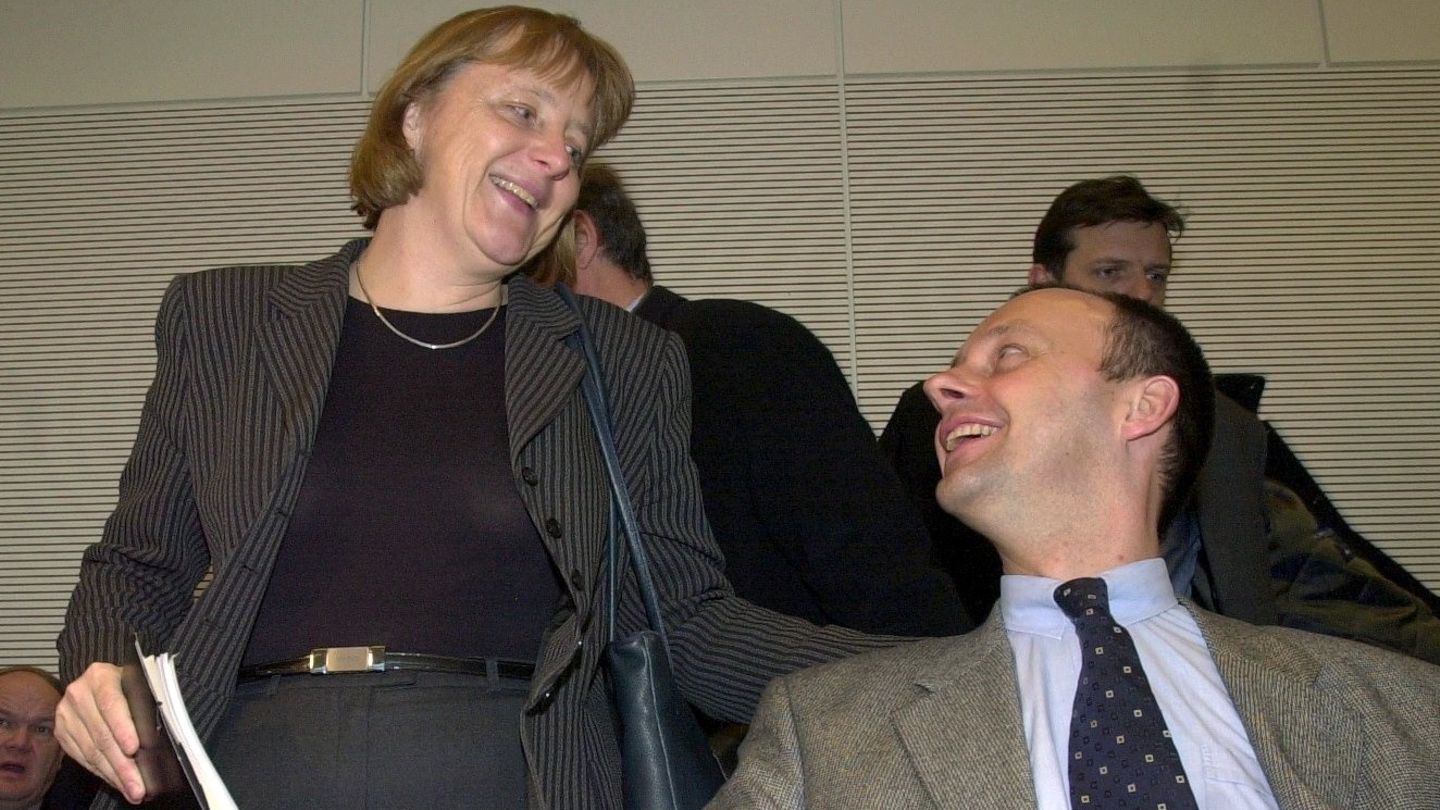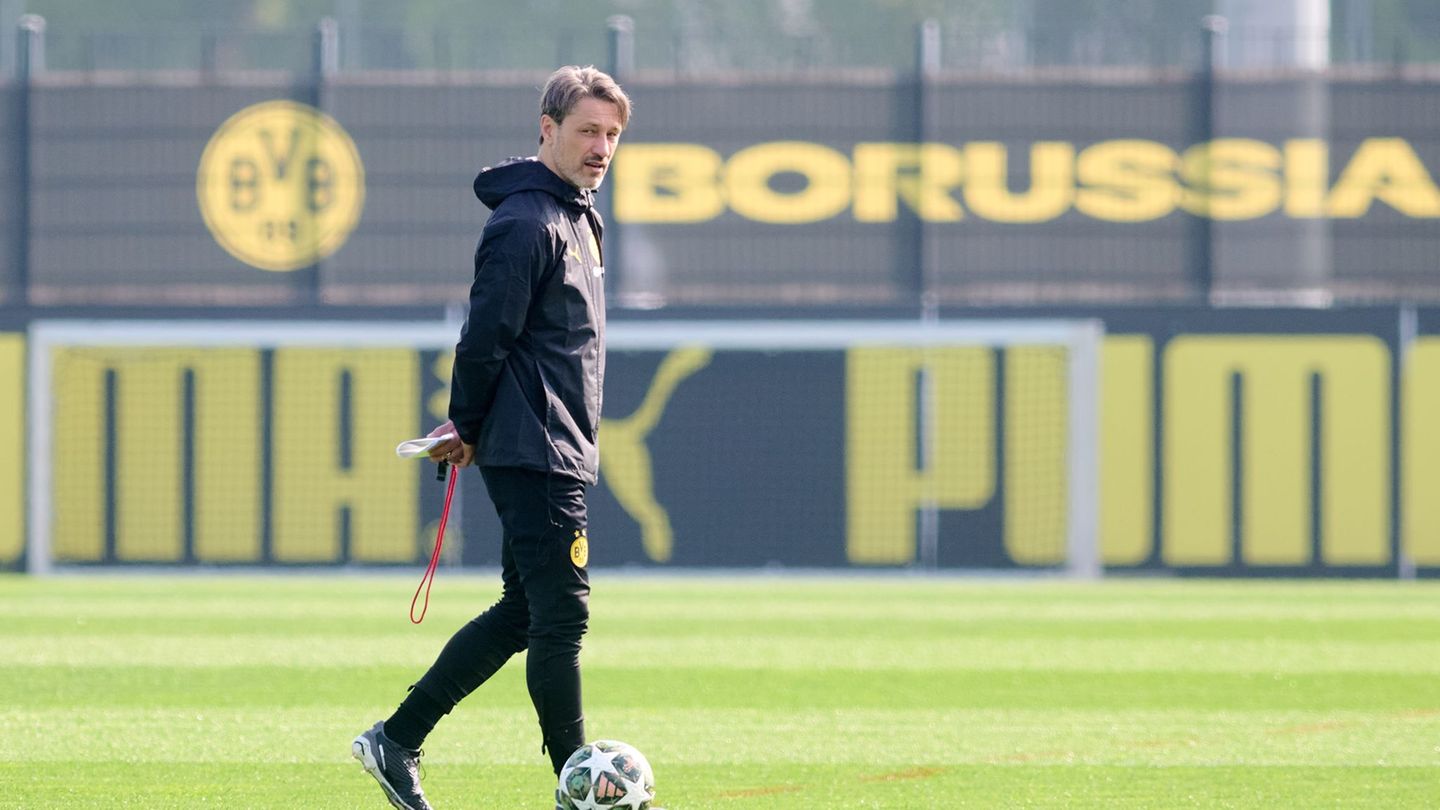A new television documentary on ZDF tries to get closer to the opposition leader. However, the comments from his competitors are more revealing than Merz’s statements – and there is one prominent omission.
The film lasts almost 45 minutes. But Friedrich Merz only says one short sentence about the woman who shaped his professional life like no other person. The woman who once coolly dismissed him, took the parliamentary group chairmanship from him and moved into the Chancellery instead of him.
Merz introduces this sentence with a short, tight-sounding laugh while holding up a photo. “Angela Merkel and I,” he says: “There were really good times.”
The picture shows the two of them a good 20 years ago, when he was the leader of the Union parliamentary group in the Bundestag for the first time and she was the chairwoman of the CDU. Together they worked as an opposition dual leadership, and not even badly – until she passed him.
The trauma of Merkel’s demotion has a clear impact on Merz. To this day, the two share a mutual and sometimes even open antipathy.
Just as he cannot forget her injury at the time, she obviously does not forgive him for seizing her inheritance. And just as Merz doesn’t talk about Merkel, she doesn’t talk about him. Of course, says film author Steffen Haug, he asked the former Chancellor for an interview. And just as naturally she refused.
Can Merz become chancellor?
Haug was at Spiegel TV for many years, most recently as editor-in-chief. He now makes successful documentaries as a freelance author. For the film about Merz, which ZDF is broadcasting on Tuesday evening, he and his co-author Maik Gizinski accompanied the opposition leader over several months, in the Bundestag, at party events and of course at home in the Sauerland.
The result is a cinematic portrait that takes time to build tension, right up to the final question: Will Merz be the next Chancellor of the Federal Republic of Germany?
It shows how Merz practices being a world politician in Paris and reflects on “thinking in European dimensions” before a conversation with Emmanuel Macron in the Élysée Palace. And of course it also shows how harshly he attacks Olaf Scholz as the “plumber of power” in the Bundestag: “You can’t do it!”
That he, Merz, can do it: He doesn’t leave the slightest doubt about that in the film. Haug and Gizinski only suggest that the reason for the politician’s never-ending ambition is not just to be found in Merkel’s humiliation, but also in Merz’s childhood. He says that his time at school was “anything but marked by outstanding achievements”. After he had to repeat a class, he only achieved “a very average Abitur”.
The film quickly covers the stages of Merz’s life, from Friedrich, the stayer, through law studies, the European Parliament, the Bundestag, the parliamentary group chairmanship and the two-decade-long exile in business to the three attempts for the CDU chairmanship – and finally, in his late 60s, reaching for the highest government office in Germany.
Or? Merz also does not officially say to Haug and Gizinski that he wants to become chancellor. Nevertheless, for every minute of the film there is no doubt that he will declare his candidacy after the state elections in Saxony, Thuringia and Brandenburg in the fall.
Söder’s conditions
But it won’t be easy again. The representative survey that ZDF commissioned for the film confirms Merz’s notoriously poor popularity ratings. Two thirds of Germans think he is unsympathetic, and only just under a quarter have a good opinion of him. Accordingly, when asked with whom the Union has the best chances in the 2025 federal election, he ends up with 15 percent, well behind Markus Söder and Hendrik Wüst, who have 27 and 25 percent respectively.
Merz as Chancellor, seriously? The 5-minute talk with stern political experts
05:15 minutes
Merz tries to put the numbers into perspective. “We don’t have a beauty pageant here,” he says. The viewer does not find out how the Prime Minister of North Rhine-Westphalia commented on these results. When interview requests were made, Wüst repeatedly pretended to have scheduling problems, says Haug.
Instead, the Bavarian head of government and CSU chairman can be seen describing his conditions for the autumn in broad Franconian. “The fact is, you have to get along with the CSU,” says Söder. “Anyone who ignores or ignores the rule or thinks that it can be done without the person who brings in the most votes: then it will always be difficult.”
The last hurdle on the way to running for chancellor is in Munich. “I think the two of us can work together,” says Söder in a jovial tone – although the cleverly edited film doesn’t just leave that alone. The announcement is destroyed by two sentences from a bitterly smiling Armin Laschet, who had to fail as a candidate for chancellor so that Merz got his last chance. The first sentence is: “Markus Söder says his place is in Bavaria.” The second follows after a short pause: “He told me that before.”
It is the ZEIT journalist Mariam Lau who formulates the obvious: “If there were federal elections tomorrow, Friedrich Merz would be chancellor.” But Haug and Gizinski give the last word to Söder. He says: “Only one thing is clear: the road there is long, long, long.”
“Mensch Merz! The Challenger” will be shown on Tuesday, April 16, 2024, 8:15 p.m., on ZDF. It will be available in the show’s media library from 10 a.m.
Source: Stern
I have been working in the news industry for over 6 years, first as a reporter and now as an editor. I have covered politics extensively, and my work has appeared in major newspapers and online news outlets around the world. In addition to my writing, I also contribute regularly to 24 Hours World.




